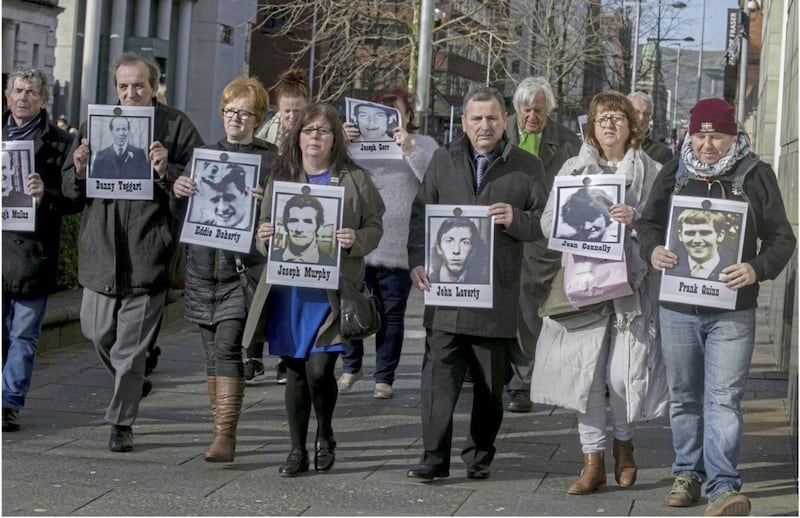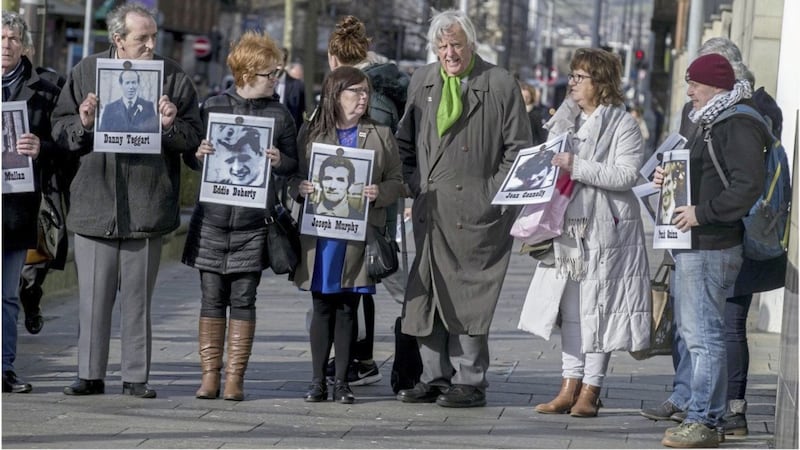SOLDIERS returning to their Belfast barracks on the night of August 9, 1971 were "excited" as they believed they had "done their duty well and were pleased", a retired general has said.
Sir Geoffrey Howlett (89) was giving his second day of evidence at Belfast Coroner's Court yesterday into the killings in Ballymurphy.
Ten people died over three days at the start of internment.
He was responding to a question from the barrister representing victim Joseph Murphy's family, who asked if the men were "on a high".
At the time, Sir Geoffrey was commander of the Second Battalion, the Parachute Regiment and was based at Henry Taggart Hall on the day internment was introduced.
The court heard tensions had escalated into a "full-blown battle".
He was asked about claims in a book by a former Paras soldier that six bodies were lying "sprawled at the bottom of a raised stage" in Henry Taggart Memorial Hall.
Sir Geoffrey said he didn't remember seeing any bodies in the hall and that they had been removed by the time he arrived.
The general was also read the testimony of Gerard Russell who was taken to the base after being shot.

He said that he and others were kicked and beaten by the soldiers until an army chaplain intervened to stop it.
Sir Geoffrey said he had been unaware of this at the time.
When asked about Fr Hugh Mullan, who had gone to the aid of the injured, he said he was "upset and absolutely horrified" that soldiers had killed a priest who was "very unlikely to be involved in activities against us".
However, speaking after yesterday's hearing, Fr Mullan's niece Geraldine McGrattan questioned Sir Geoffrey's sincerity and said he had made "no enquiries whatsoever into my uncle" and could have done more.
Questioned by Fiona Doherty QC, who represents the family of Joan Connolly, the 44-year-old mother of eight shot dead, the retired general said he was certain she was not shot on purpose.
"I doubt that one of my soldiers would have fired at a woman who didn't have a visible weapon," he said.
He added that "you do not always hit the person you are firing at" and that people could be caught in crossfire.
Asked about allegations that soldiers had taunted Mrs Connolly's children after her death as they played on the street by singing 'Where's your mama gone?', he said it didn't sound like something his soldiers would do.
"It would be outrageous?" asked Ms Doherty.
"Yes, absolutely outrageous," he replied.
A second witness, known as M45, gave evidence from behind a screen which meant he was hidden from the public gallery but still visible to relatives of the victims.
In a statement read to the court, the army major from Second Battalion, the Parachute Regiment said soldiers had detained 18 men as part of the internment operation and they were initially taken to the Henry Taggart Memorial Hall.
He maintained that none of the victims brought into the hall were mistreated and that at least one man had been given a cigarette and a cup of tea.
The officer said that during the subsequent rioting and exchange of fire, troops had responded with rubber bullets, CS gas and water cannon.








